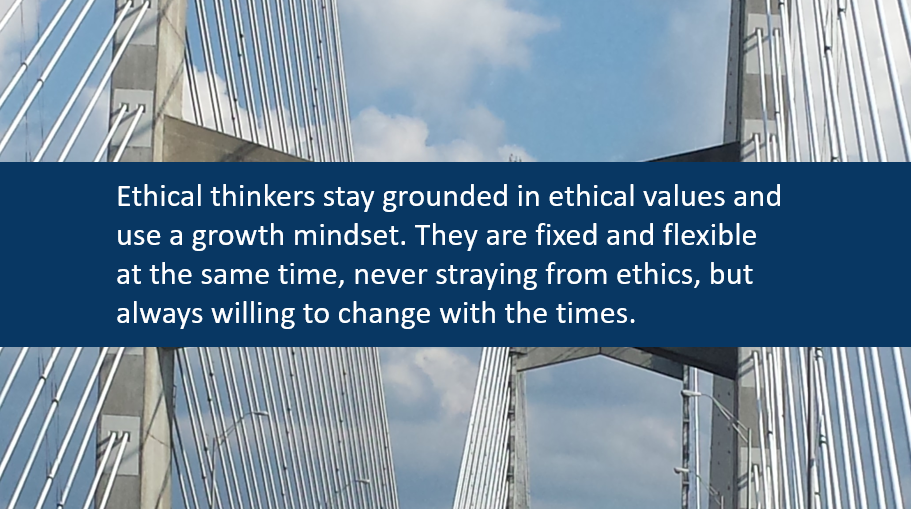
By Linda Fisher Thornton
Who we include in our ethical thinking, and how broadly we consider our responsibility to others are both important elements of ethical leadership. In Part 1 of this series, I explored the Depth of our thinking, and in Part 2, I broke down issues related to understanding Context. In Part 3, I looked at embracing Complexity. In Part 4, we’ll dig into the importance of Inclusion.
Why is Inclusion Important?
It is easy to exclude. Our brains are wired to keep us safe, and we typically prefer to be with people in our own trusted groups. If we don’t manage our thinking and perceptions, and our reactions to people and situations, we may (intentionally or unintentionally) make decisions that harm others who are not like us.
“A brain structure called the amygdala is the seat of classical fear conditioning and emotion in the brain. Psychological research has consistently supported the role of fear in prejudiced behavior.”
Naomi Schalit, Humans are wired for prejudice but that doesn’t have to be the end of the story in The Conversation
What Does It Require?
Full inclusion requires that we extend our respect, our care and our concern to all people. It means making responsible choices about what happens to people inside our trusted groups and well beyond them. Applying full inclusion, we see that everyone is within our purvue, everyone demands our consideration, and everyone deserves to be treated well. Treating everyone well means going beyond the superficial level, and beyond token gestures of concern, to offer the same high level of care and concern that we extend to our trusted groups.
Who Do We Engage and Listen To?
Inclusion requires treating people with respect and care, but it also includes engaging in dialogue with people outside of our usual circles, finding out what really matters to them and what they need. If we don’t, we’re just guessing at what they need and our solutions may do more harm than good.
What Ethical Thinkers and Leaders Don’t Do
- Treat people outside their trusted groups with a lower level of respect and care
- Think of certain groups as “in” or “out” of their favor
- Fall into the trap of deciding what groups of people need without involving them
- Use divisive language that incites discriminatory or harmful behavior from others
What Ethical Thinkers and Leaders Do
- Ethical thinkers and leaders know that diversity is part of the leadership sphere and they embrace full inclusion
- They build inclusive teams
- They include diverse voices in important conversations and honor the needs and perspectives of all constituents
- They understand that diversity is an asset and inclusion is a leadership responsibility
When we ignore the importance of inclusion, we may play favorites or treat certain groups disrespectfully, calling attention to our lack of ethical competence. By embracing inclusion, we stay on the path to ethical solutions that work for all, fulfilling our responsibility as ethical leaders in a global society.
Stay tuned for Part 5!

Unleash the Positive Power of Ethical Leadership
© 2009-2023 Leading in Context LLC

My favorite section of this article is “Who Do We Engage and Listen To.” Finding out what people really need and want can be a difficult task, especially if the people we lead don’t trust us enough to be honest. I’ve worked with companies who seemed to have great culture on the surface, but distrust was always on the forefront of their minds. Distrust in others at their position, and their leaders. Transforming this culture identity can be difficult, but articles such as this give me confidence that it’s possible.
LikeLike